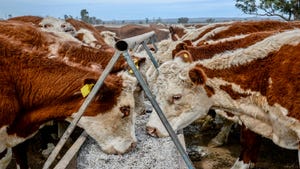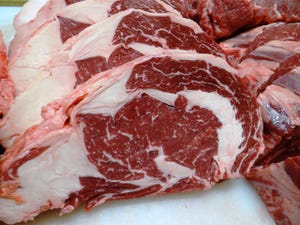Are beef producers interested in cooperative business models?
Producers' willingness to explore cooperative models depends upon certain factors.
April 8, 2024
Key considerations, especially for smaller-scale and new beef producers, are the constraints on processing capability and marketing. Cooperative business models are one approach. But are beef producers themselves interested in this approach?
"Producer-based cooperative marketing and processing have been embraced in some sectors of animal agriculture, some for many years," says David Beede, PhD, editor in chief of Applied Animal Science. "A new study out now in Applied Animal Science describes an assessment of northern New England beef producers' interest in engaging in these models, revealing that producers with smaller-scale and newer operations were willing to explore cooperative business ventures but for different reasons than more established and larger-scale producers."
The study's lead investigator, Drew Conroy, PhD, of the Department of Agriculture, Nutrition and Food Systems at the University of New Hampshire, Durham, New Hampshire, explains, "We know from other research that building new processing facilities alone would not solve the current difficulty in access to beef processing services." As a result, producers in the United States have turned to the possibility of cooperative business models.
These models include cooperative processing—or when a group of producers collectively join together to share slaughter or processing services, often using mobile slaughter units, or buying or building new facilities to be shared. It also includes cooperative marketing, where producers conduct sales under a regional or local brand and coordinate and aggregate their supply to create a larger, more consistent volume of products. Understanding the viability of these business models begins with understanding whether producers are open to participating in them, and as Conroy explains, "defining the characteristics of producers likely to participate."
The team began their study by developing a study of cross-sectional, closed-ended questions that fell into 5 categories: producer demographics, processing experiences, interest in cooperative marketing, interest in cooperative processing, and amount of assistance needed. They shared the survey will a broad group of commercial beef producers in New England who sell USDA-inspected, state-inspected, or custom-processed meat directly to consumers.
The survey ultimately gathered 174 responses, and after analysis, the results showed that "beef producers in New England are open to participating in cooperative business models of production, especially if it can alleviate some of their current processing constraints, help them work with other producers, or give opportunities to scale up their operations," explains Conroy. Overall, larger and more established beef businesses—in terms of income, years of experience, and herd size—were less willing to consider experimenting with cooperative business models, whereas smaller and newer beef businesses were generally more receptive to them.
The research team was careful to explain that general unfamiliarity with cooperative models, potential investment costs, and concerns about ultimate returns on investment did raise hesitation among the producers they surveyed. "So, it'll be essential that future research focuses on the economics and governance structures of cooperative business models if we hope to successfully move forward," says Conroy.
Understanding the factors influencing producer willingness to participate in cooperative models is crucial for guiding further research and development efforts in this area. The study suggests that cooperative businesses could be a viable strategy for addressing challenges faced by northern New England's beef industry, particularly for smaller and newer producers.
"The approach and information may be applicable in other geographical regions of the United States," says Beede.
You May Also Like



